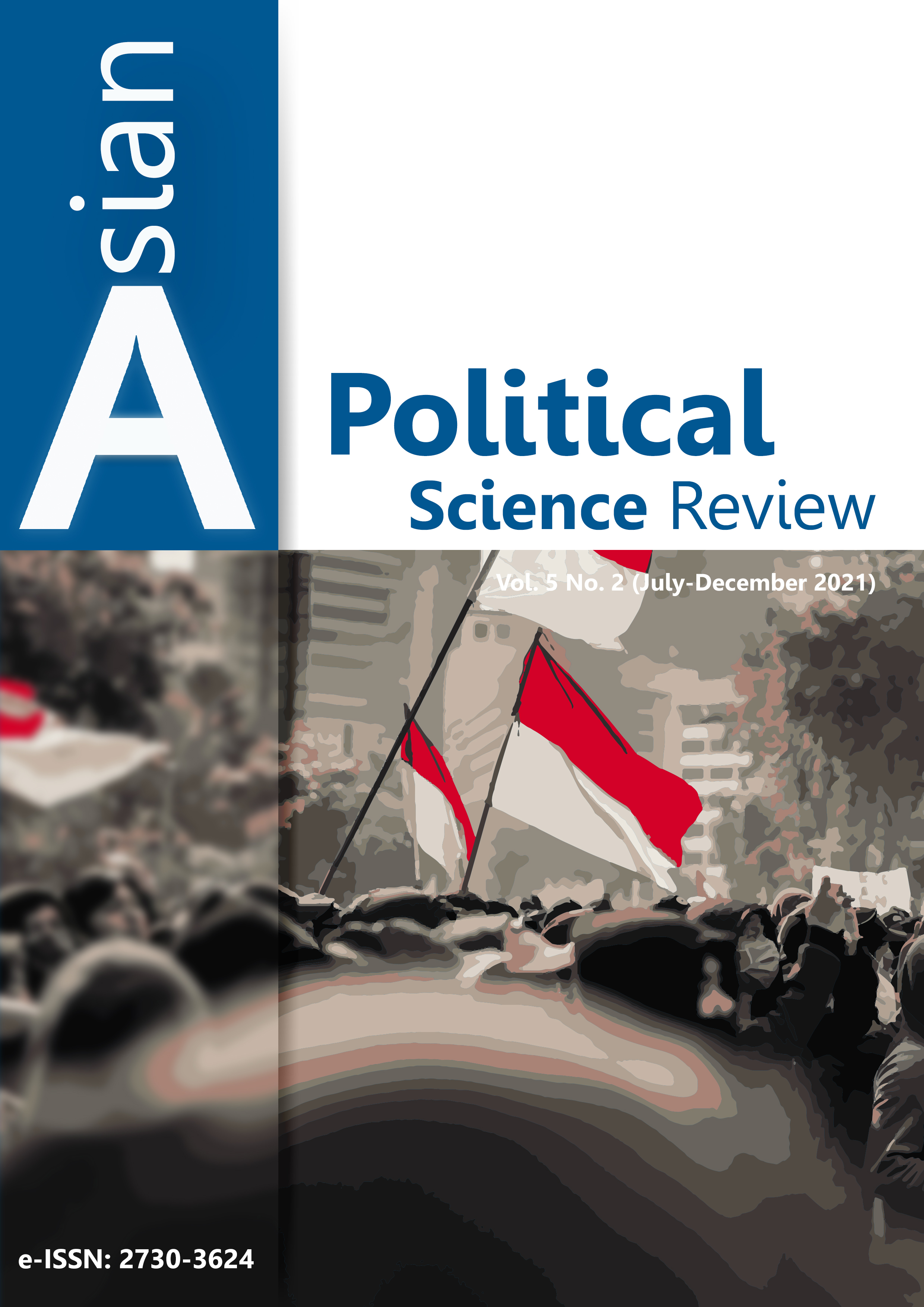The Pandemic and the Decline of Indonesian Democracy: The Snare of Patronage and Clientelism of Local Democracy
Keywords:
Democratic Decline, Patronage, Clientelism, Local Democracy, IndonesiaAbstract
The quality of Indonesia's democracy has decreased, and several findings of democratic institutions indicate a significant reduction that touches aspects of civil liberties and pluralism and the function of government. It is essential to research how far theocratization has taken place in Indonesia during the COVID-19 Pandemic. The method used in this research is qualitative with a meta-theory approach. The results of this study show, first, that democratic sectors, especially in the context of general elections, are still at high risk of corruption. Over the past year, Indonesia has been political corruption that is the mother of all forms of corruption in the state structure that can affect the implementation process and the quality of democracy. Second, requests for political dowries by political parties and corruption by regional heads for campaigning purposes. They resulted in interactions between elites that form patronage and clientelism composed of patrons held by the economic elite with resources. The two factors above are important reasons for estimating the declining quality of Indonesian democracy.
Downloads
Downloads
Published
Versions
- 2022-02-07 (2)
- 2022-02-07 (1)
How to Cite
Issue
Section
License
Copyright (c) 2021 Asian Political Science Review

This work is licensed under a Creative Commons Attribution-NonCommercial-NoDerivatives 4.0 International License.












.png)

